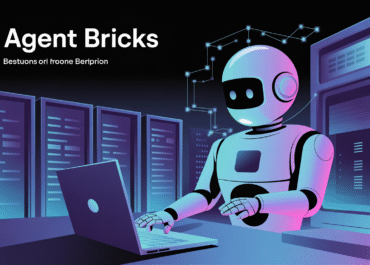AI-Powered Digital Transformation: Unlocking Growth and Innovation
In an increasingly competitive global landscape, businesses are relentlessly seeking new avenues for efficiency, innovation, and growth. The answer for many lies in a powerful synergy: Digital Transformation amplified by Artificial Intelligence (AI). This isn’t just about adopting new tools; it’s about fundamentally rethinking operations, products, and services to create an agile, future-proof enterprise.
What is AI-Powered Digital Transformation?
Digital Transformation, at its core, is the strategic integration of digital technology into all areas of a business, fundamentally changing how you operate and deliver value to customers. When AI enters the equation, this process gains an unprecedented catalytic force. AI-powered digital transformation involves embedding intelligent capabilities – from machine learning and natural language processing to computer vision – across the organizational structure.
This integration goes beyond mere automation; it enables systems to learn, adapt, and make informed decisions, leading to optimized workflows, predictive insights, and hyper-personalized experiences. AI acts as the brain behind the digital muscles, allowing businesses to not just keep pace with change but to drive it.
Key Pillars of AI in Digital Transformation
The impact of AI on digital transformation can be categorized into several critical areas, each offering distinct advantages:
- Enhanced Efficiency & Automation: AI excels at automating repetitive, rule-based tasks, freeing human employees to focus on more strategic and creative work. From robotic process automation (RPA) in back-office operations to AI-driven quality control in manufacturing, efficiency gains are substantial. Predictive maintenance, powered by AI, can reduce downtime and operational costs significantly.
- Unlocking Data-Driven Insights: Businesses today collect vast amounts of data, but raw data alone holds little value. AI algorithms can process, analyze, and interpret this data at speeds and scales impossible for humans, uncovering hidden patterns, trends, and actionable insights. This leads to superior decision-making, from optimized supply chains to targeted marketing campaigns.
- Revolutionizing Customer Experience (CX): AI powers sophisticated chatbots for instant support, personalizes product recommendations based on past behavior, and analyzes customer sentiment to anticipate needs. This leads to more engaging, satisfying, and loyal customer relationships, transforming how businesses interact with their clientele.
- Driving Innovation & New Business Models: AI is not just about improving existing processes; it’s a powerful engine for innovation. It can help in developing entirely new AI-powered products and services, exploring novel revenue streams, and enabling data-driven R&D that accelerates time-to-market for groundbreaking solutions.
Navigating Your AI-Driven Transformation Journey
Embarking on an AI-powered digital transformation requires a strategic and methodical approach:
- Define a Clear Vision & Strategy: Begin by identifying specific business challenges or opportunities that AI can address. Align AI initiatives with overarching business goals, ensuring leadership buy-in and a clear roadmap.
- Build a Robust Data Foundation: AI thrives on data. Invest in data collection, cleaning, governance, and storage infrastructure to ensure high-quality, accessible data that feeds your AI models.
- Start Small, Scale Smart: Don’t attempt to transform everything at once. Begin with pilot projects that demonstrate tangible ROI. Learn from these initial successes and failures, then iteratively expand AI capabilities across the organization.
- Invest in Talent & Culture: Digital transformation isn’t just about technology; it’s about people. Upskill your workforce, foster a data-driven culture, and encourage experimentation and continuous learning to fully leverage AI’s potential.
Overcoming Challenges
While the benefits are immense, challenges exist. These include ensuring data privacy and security, addressing ethical considerations of AI, bridging the AI talent gap, and managing the complexity of integrating new systems. Proactive planning, robust governance frameworks, and continuous training are crucial for mitigating these hurdles.
Ultimately, AI-powered digital transformation is not a one-time project but a continuous journey of evolution. By strategically integrating artificial intelligence into their core operations, businesses can unlock unparalleled levels of efficiency, gain profound insights, deliver superior customer experiences, and cultivate a culture of relentless innovation. Embracing AI is no longer optional; it is the strategic imperative for thriving in the digital age, acting as the ultimate catalyst for the future of business.


